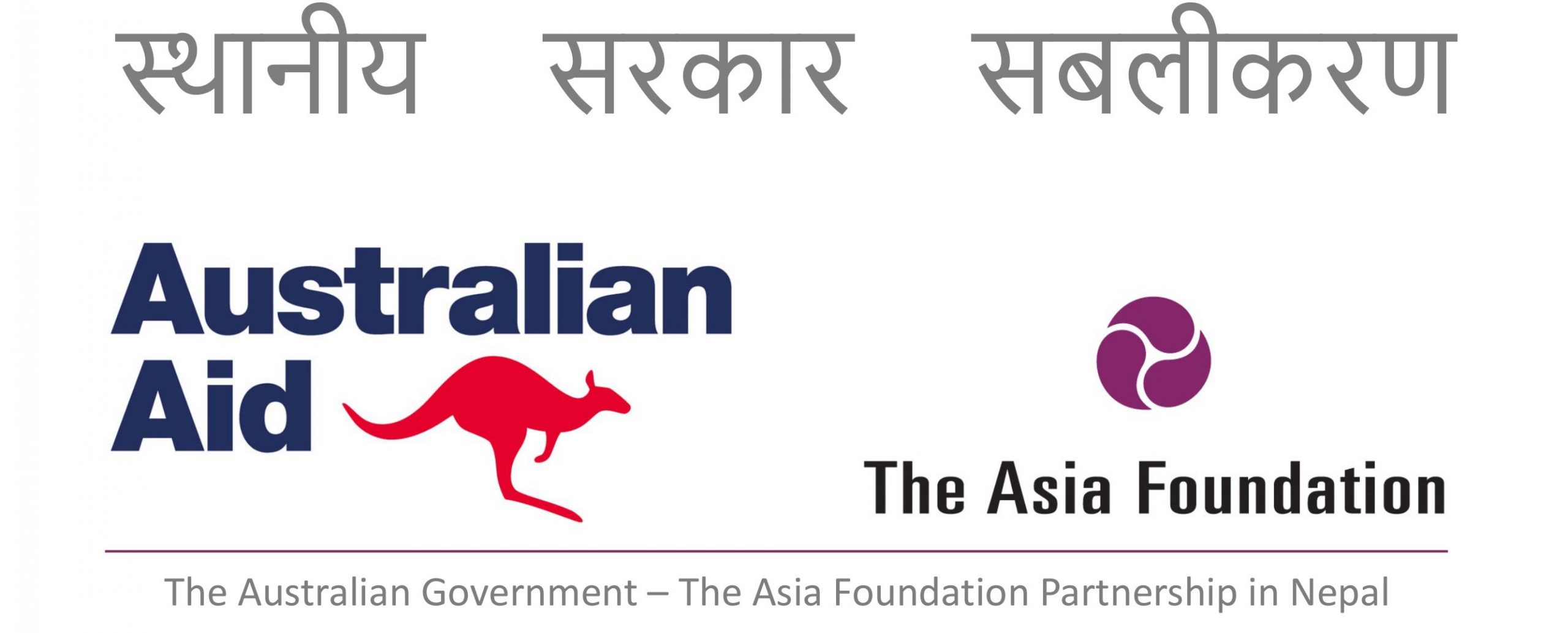COVID-19 Announcement for SNGP Web Portal
“Coronavirus disease (COVID-19) is an infectious disease caused by a new virus. The disease causes respiratory illness (like the flu) with symptoms such as a cough, fever, and in more severe cases, difficulty breathing. It spreads primarily through contact with an infected person when they cough or sneeze. It also spreads when a person touches a surface or object that has the virus on it, then touches their eyes, nose, or mouth[1].”
The Strategic Partnership between The Australian Department of Foreign Affairs and Trade (DFAT) and The Asia Foundation (the Foundation) to Support Subnational Governance in Nepal is cognizant of the more than 16,000 lives claimed by COVID-19 worldwide as of March 25, 2020. The pandemic continues to take a massive toll not only on global health systems but on several aspects of everyday life. As countries try to control its spread, they are introducing unprecedented measures at significant social and economic costs – closing schools and businesses, cancelling sporting events and asking people to stay home and stay safe[2].
The Foundation commends the decision taken by the Government of Nepal (GoN) in line with Infectious Disease Control Act, 2020 to initiate a lockdown from March 24 to March 31, 2020. We have not dealt with a disease like COVID-19 in over 100 years[3]. In the case of Nepal, given the global scenario, it is only a matter of time before more cases are identified. We neither have the diagnostic capacity, nor the intensive care infrastructure to handle a potential outbreak. Given the observed speed with which COVID-19 spreads, it is prudent to acknowledge limitations in Nepal’s health systems[4]. As these capacities are not built overnight, we must expect the worst and act accordingly.
While the world continues to figure out how to address the pandemic, the Foundation is taking extra precautions heeding the advice from public health officials and health experts. The Foundation’s office in Nepal has been closely monitoring the spread of COVID-19 globally, and we have been following guidance from GoN, our Headquarters in San Francisco and local health authorities to ensure we have the right plans and resources in place to safeguard our health and well-being. As health and safety of all our staff and stakeholders remain to be of primary concern, the Nepal office has activated mandatory work from home policy from March 23, 2020 until further notice.
We have reached out to our valued consultants, sub-grantees, and contractors providing clarification on our altered mode of operations and have stressed the importance of complying with GoN guidelines, calling for utmost precaution and halting of any activities requiring a gathering of people, including travel from March 22 – April 3, 2020 that may not be deemed “essential services” under the Essential Services Operation Act, 2014. Beyond that, until new updates emerge, partners, as responsible locally registered organizations, are required to ensure that its sub-contractors and personnel have regard to and comply with, relevant and applicable laws, guidelines and policies, including those of GoN, World Health Organization (WHO), and donor agencies.
The Asia Foundation Nepal will continue to monitor the situation and keep all our stakeholders posted on further updates. We thank you for your ongoing attention and cooperation with our efforts to keep everyone as safe and healthy as possible.
Should a need arise to contact the Foundation regarding the pandemic, you can reach Mr. Samarjeet Singh Thapa, Communications Officer at + 977 – 9808266675.
[2] https://www.who.int/dg/speeches/detail/who-director-general-s-opening-remarks-at-the-media-briefing-on-covid-19—25-march-2020
[3] The SARS-CoV-2 coronavirus is the most serious respiratory virus since the 1918 Spanish Flu: Impact of non-pharmaceutical interventions (NPIs) to reduce COVID19 mortality and healthcare demand, Also see Responding to Covid-19 — A Once-in-a-Century Pandemic?
[4] In total it is estimated that Nepal has 27,000 hospital beds in total. Investment Board Nepal, Health Sector Profile pg 5. Which cites the World Bank development indicators 2014.
More Publication
Women in Leadership: Achieving an Equal Future in a COVID-19 World
Women in Leadership Infographics
Short Bios of Dalit Women Representatives
Posted on April 3, 2020

